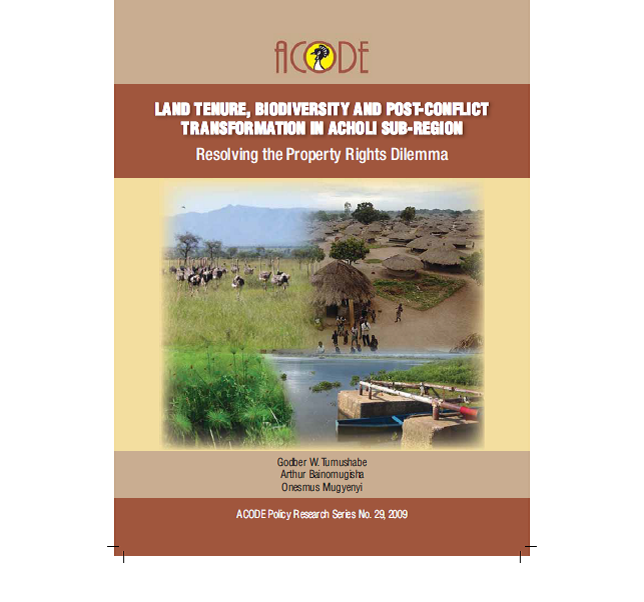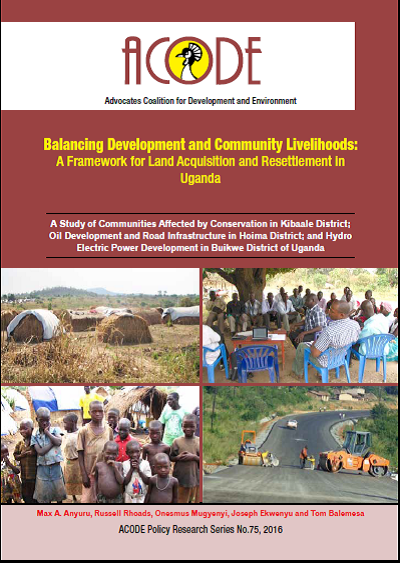
Topics and Regions
Advocates Coalition for Development and Environment (ACODE) is an independent public policy research and advocacy think tank based in Uganda working in East and Southern Africa. ACODE was first registered in 1999 as a Non-governmental organization (NGO). In 2004, the organization was incorporated as a company limited by guarantee and without having a share capital. ACODE is one of the most dynamic and robust regional leaders in cutting-edge public policy research and analysis in a range of areas including governance, trade, environment, and science and technology. ACODE has, for the last four consecutive years, been ranked in the Global Go To Think Tank Index as one of the best think tanks in Uganda and one of the top think tanks in the world. Think Tanks in Africa continue to play a major role in policy development and implementation. The Advocates Coalition for Development and Environment (ACODE) has been ranked 23 out of 92 Top Think Tanks in Sub-Saharan Africa and 29 out of 90 globally with Best Advocacy Campaign in the 2015 Global Go To Think Tank Index Report (TTI), led by the University of Pennsylvania through its Think Tanks and Civil Societies Program (TTCSP).
ACODE is non-partisan and independent and therefore does not align with any political party or political organisation. However, given the direct relationship between development policy and politics, we believe that our work is political and it must stand for certain political causes of a bi-partisan nature. Such causes are legitimate issues of research interest so long as they are defined on the basis of constitutionalism, the rule of law as well as national and regional interests as expressed in the relevant treaties, strategy documents and declarations. ACODE's work is based on three broad programmes areas: Environmental Democracy, Peace and Democracy, and Innovation and Biotechnology Policy. Our core business is to undertake advocacy-driven public policy research and analysis on contemporary and emerging public policy and governance issues that have a significant impact on national development.
Details
Location
Contributions
Displaying 51 - 52 of 52LAND TENURE, BIODIVERSITY AND POST-CONFLICT TRANSFORMATION IN ACHOLI SUB-REGION
This paper presents the results of a study on property rights in land and biodiversity resources in the Acholi Sub-region. The objective of the study was to map out the changes that have taken place in the sub-region since the dawn of colonialism and how these changes have impacted on the contemporary property rights structure in land and biodiversity resources in the sub-region.
Balancing Development and Community Livelihoods: A Framework for Land Acquisition and Resettlement in Uganda
Land acquisition for development projects by government, private investors and land speculators is a critical source of tensions and conflicts in many parts of Uganda. Following the discovery of commercially viable oil reserves in 2006, Uganda turned attention to extractives and oil development as a matter of national priority. Evidence of this assertion can be found in the recent 2016-17 national budget allocations, where the portion for oil development is substantial.


